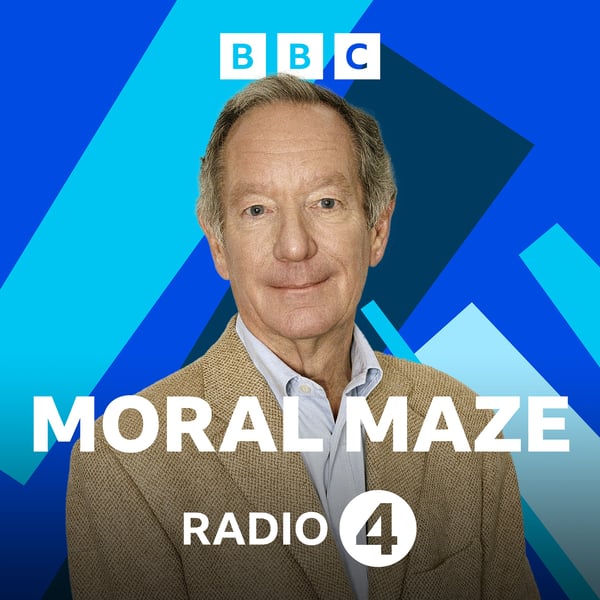Summary
Twelve years to save the world. While we're squabbling about Brexit, climate scientists are reminding us that the existential threat of our day is global warming. This week’s report from the Intergovernmental Panel on Climate Change (IPCC) issues the most extensive warning yet on the risks of rising temperatures. According to its authors, keeping to the preferred target of 1.5C above pre-industrial levels will mean cutting carbon emissions by 45% by the year 2030. That will involve, they say, "rapid, far-reaching and unprecedented changes in all aspects of society". Decades of increasing prosperity, freedom and choice in the West have come at a cost. The rest of the world wants rapid growth too, but should they be allowed to have it? In a society that badly needs to learn the meaning of ‘delayed gratification’, how should we, as individuals, change our behaviour? When the priority is putting food on the table, many choose economic expedience over sustainability - it can be expensive to go green. Would it be right for the government to make us all greener by taxing or even banning log-burning stoves, gas-guzzling cars and cheap air travel? Many make the moral case for saving the planet on behalf of our grandchildren. But what of our moral obligation to those who don’t yet even exist? Is it morally dubious to put the theoretical interests of posterity before the real and immediate needs of poor people today? If climate change is the organising call of our age, how should we respond? Combative, provocative and engaging debate chaired by Michael Buerk. With Shiv Malik, Anne McElvoy, Tim Stanley and Giles Fraser. Witnesses: Leo Barasi, Author of “The Climate Majority: Apathy and Action in an Age of Nationalism”; Ross Clark, Journalist, author and political commentator; Charlotte Du Cann, Core member of the Dark Mountain project; and George Monbiot, Journalist, columnist and campaigner.
Producer: Dan Tierney
Transcript
Click on a timestamp to play from that location
| 0:00.0 | You're listening to a programme from BBC Radio 4. |
| 0:05.5 | Good evening. Perhaps we shouldn't have been smug about that so un-Britishly glorious summer, |
| 0:10.8 | now shading into mild, sunlit autumn. |
| 0:13.6 | Every silver lining has a cloud, in this case an apocalyptic one, if the climate scientists are right. |
| 0:19.5 | A report this week from the Intergovernmental Panel on |
| 0:21.8 | Climate Change says, basically, we have 12 years to save the world. By 2030 on present trends, they reckon |
| 0:28.9 | average global temperatures will have risen by 1.5 degrees centigrade above pre-industrial levels. |
| 0:34.8 | If they go above that, they say, there'll be dire consequences, |
| 0:38.4 | catastrophic ones perhaps if the tipping points they talk darkly about are reached. |
| 0:43.4 | They call for rapid, far-reaching and unprecedented change in all aspects of our society, |
| 0:49.3 | changes that would see trillions spent on clean energy and a simpler, less mobile lifestyle in the developed world. |
| 0:56.5 | Of course, there are still those who don't think global warming is happening, that human activity |
| 1:00.4 | is not the main cause or that the consequences will be far from uniformly negative. |
| 1:05.9 | But the scientists and policy makers say the problem is more apathy than, as they put it, |
| 1:10.5 | denial. |
| 1:12.0 | The rich world has become used to freedom, prosperity and choice, and is reluctant to limit them |
| 1:16.6 | or have governments do it for them. But what is our moral responsibility? To the planet, |
| 1:22.6 | to future generations, to the poorer people of the world who badly want what we have? |
| 1:27.3 | Might we be putting the theoretical interests of rich people's great-grandchildren |
| 1:31.4 | above the immediate needs of third-world children today? |
| 1:35.3 | These scientists say climate change is the existential threat of the age. |
| 1:39.0 | How should we respond? |
... |
Please login to see the full transcript.
Disclaimer: The podcast and artwork embedded on this page are from BBC, and are the property of its owner and not affiliated with or endorsed by Tapesearch.
Generated transcripts are the property of BBC and are distributed freely under the Fair Use doctrine. Transcripts generated by Tapesearch are not guaranteed to be accurate.
Copyright © Tapesearch 2025.

